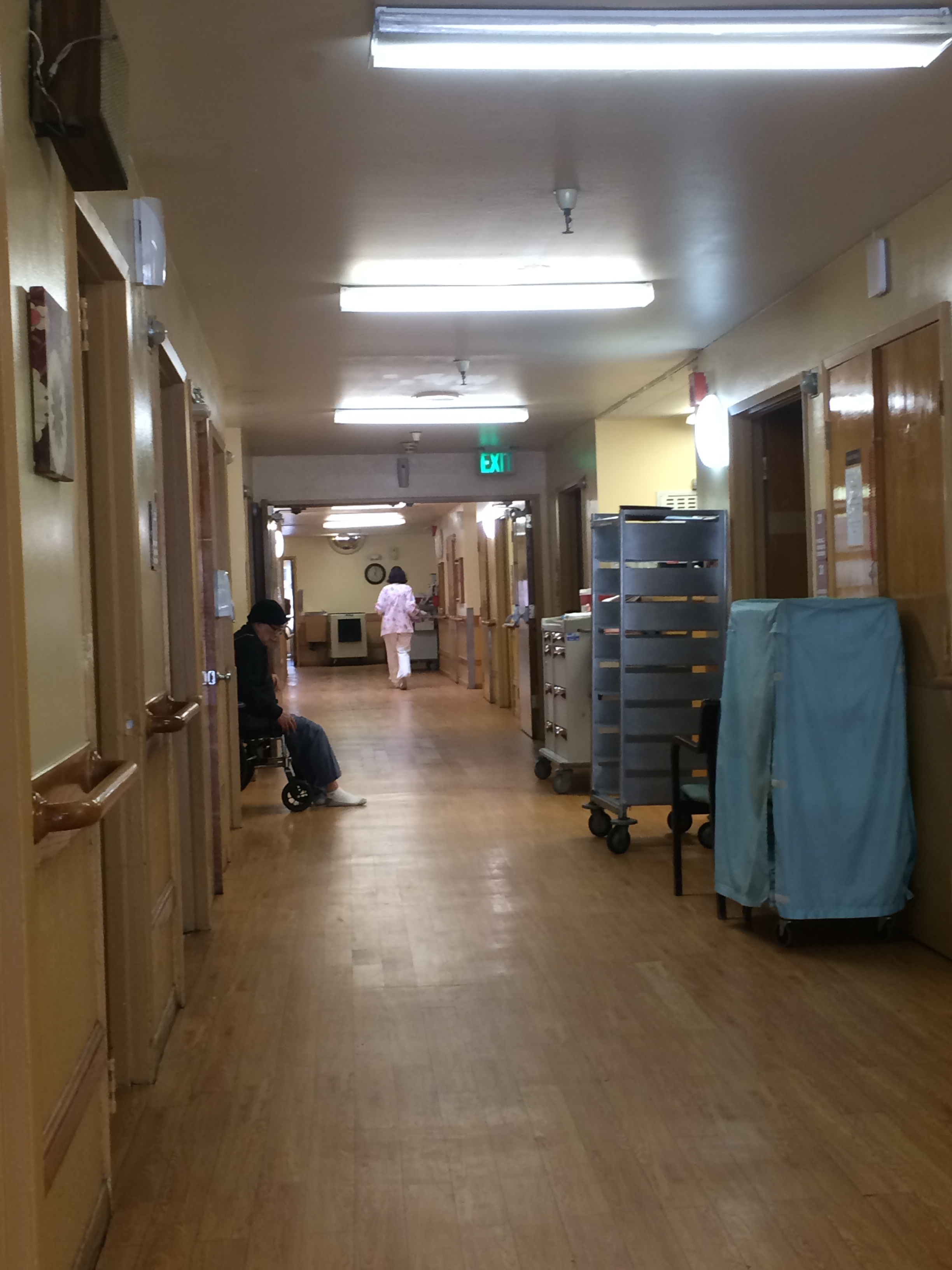I’ve been an ordained pastor for 13 years. In that time I’ve done eight baptisms, and roughly double the amount of memorial services and accompanying people in and through their death. My seminary training taught me much about baptizing, and bringing people to faith, accompanying them to new life in a community. I never once (at least to my recollection) had a teaching on accompanying people into death. I was told to read a lot of scripture in a memorial/funeral service, as opposed to doing a lot of preaching. But no one told me about what to expect. I wasn’t equipped in how to prepare or even what I might have the opportunity to be or do as I sit with families and friends of loved ones who are dying, and specifically with those who are dying –whether conscious or not.
This seems insane to me, obviously from the statistics I mentioned above, and also because I’m working in an “institution” that is itslef in hospice or palliative care. And so I feel as if I move in macro and micro circles around death. Death in itself isn’t a bad or a good thing. It’s part of life, no matter how much we seek to deny it. It’s part of life even if we override it, trying to avoid it and see it through rose colored glasses because of the Christian belief that we’ll be resurrected with and in Christ.
In the past weeks I’ve accompanied a family member to and through death in hospice care. Simultaneously I was visiting a church relation who is hospitalized (for lack of a better work for what seems to be a forced hostage in a nursing home sort of situation). She will most likely die in the lethargy-inducing loudness of a darkish nursing home room surrounded by 5 other patients in various degrees of consciousness and mobility. What does it mean to talk to such people about eternal life?; in particular when their current life – or moment – might seem like (and probably is) an eternal torment or suffering?
I recently read the book Being Mortal by Atul Gawande – which is addressing this sort of question from a medical perspective. He recognizes that medicine is all about preserving and prolonging life, ensuring safety…but rarely (if ever) asks the question what kind of life is worth prolonging? We’re all mortal. We all with die. We cannot escape the constraints and limits of our biology. Medical science has given us amazing power to push back against these existential and biological limits. Theology and faith seek to give us the hope to transcend them. But, we cannot escape them. We all will die.
And so the question is more about empowering “well-being” (as Gawande calls it); gospel-living, or incarnational-living (as Christian faith might call it); or being fully alive (as 21st century folks might call it, quoting the ancient bishop of Lyon, Irenaeus from the 5th century). Gawande writes
“Whenever serious sickness or injury strikes and your body or mind breaks down, the vital questions are the same: What is your understanding of the situation and its potential outcomes? What are your fears and what are your hopes? What are the trade-offs you are willing to make and not willing to make? And what is the course of action that best serves this understanding?” p. 259
As a pastor I spend most of my energy asking how people are, and then praying with them for healing, recovery and strength. But is that prayer appropriate – or even desired – when death is inevitable? Why not talk about fears and hopes? If doctors are being encouraged to switch from a perspective of preserving life at any cost, to questions about the quality of life; why am I not pushing myself to talk more about being fully alive as opposed to biological maintenance by machine? And what about providing pastoral care to families/friends who are there, at the hospice bedside? They want and need more than empathetic looks. How do we name the complex tension of wishing for the expedient death of a loved one to end and avoid continuing suffering? Catholic Theology affirms the sanctity of life at any cost, yet we now are capable medically and technologically of maintaining biological life when the spirit, or soul, or whatever it is that makes us “alive” is tired, gone, ready to end?
Death can be horrible. It usually is. And death can also be good and beautiful in an existential way. That’s not a death wish, or a question of euthanasia, but rather a recognition that we are human and want humane deaths….not alone in a dark room punctuated by flashing lights and the beepings of the machine that try to keep us alive; but surrounded by loved ones, in light, comfortable, at home, or at least somewhere familiar. The Apostle Paul writes that “God is doing a new thing,” so how do we apply and understand that in death and at the deathbed of a loved one?
Maybe that same tension. about a good death versus a bad one, a keeping-someone-alive-at-all-costs versus letting someone die on their own terms, applies to the Church in 21st century western civilization? What is it that leads us to train and empower those in the church to simply keep things going as they’ve have been, to settle for maintaining the all-too-often self-preserving institution as opposed to letting what is dying go and looking to what will come next and in that death?
How does our desire to hold onto life at any and all costs keep us from actually living?
